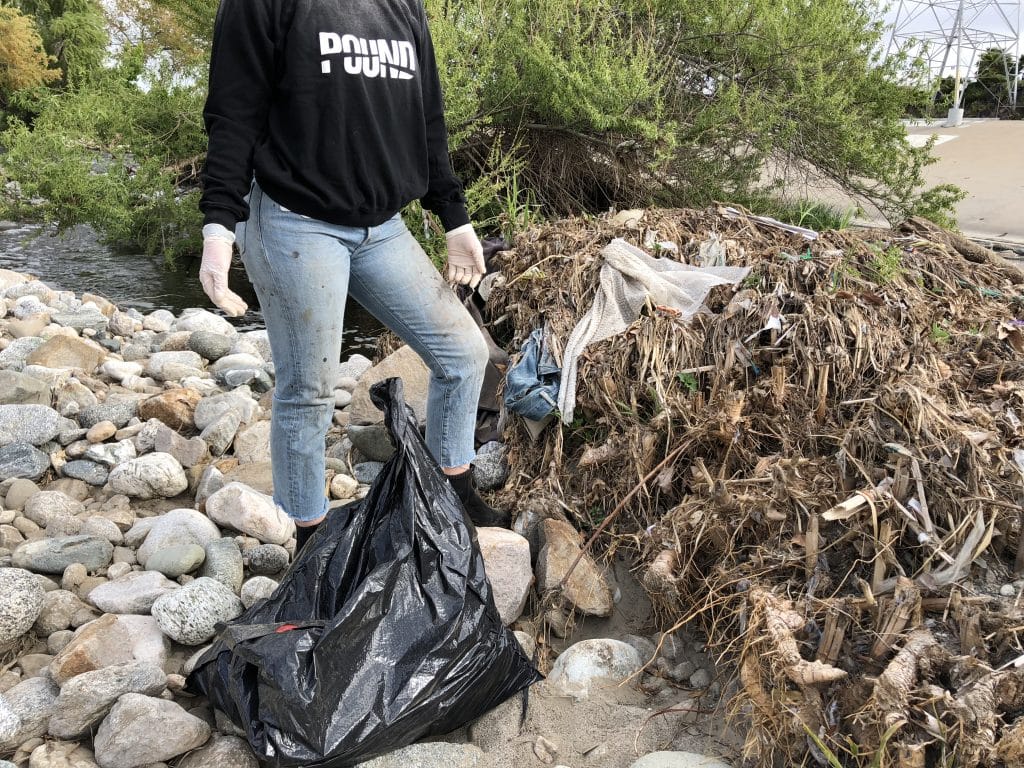1. Plan Weekly Meals
Did you know that 40% of food produced in the U.S. is wasted? We’re guilty of throwing out wilted lettuce and shriveled up tomatoes from time to time —but that changes now! In an effort to reduce methane, a potent greenhouse gas, we’re aiming to reduce food waste. Each week we’ll be planning our weekly meals ahead of time and writing out our ingredient lists. To ensure our produce doesn’t go bad before we make each meal, we’ll be stopping by the grocery store twice a week on our way home from work.
2. Analyze The Garbage
To piggyback off of meal planning, one of the ways you can monitor your consumption and become a planning pro is to analyze what you’re actually wasting. Before your next trip to the grocery store take a look at what’s in your garbage and see what’s in there. This is a great way to become more aware of what you throw away, and will help you to adjust your consumption to reduce your footprint. Whether that means picking up produce from the grocery store more than once a week, or learning that by Thursday night you’re too tired to cook—your garbage can provide you with great insight!
3. Buy Organic As Much As Possible
As consumers, whenever we buy something we’re voting with our dollars—even if we’re unaware of it. But, we never think about this when we’re buying groceries. The next time we head to the local farmer’s market or grocery store we’ll be voting for an agriculture system that’s better for the environment—organic. Organic agriculture systems don’t use synthetic herbicides or pesticides, which is foreign to our bodies and can cause harm, but it also is damaging to the air, water and environment as a whole!
According to the Food and Agriculture Organization of the United Nations , “By opting for organic products, the consumer through his/her purchasing power promotes a less polluting agricultural system. The hidden costs of agriculture to the environment in terms of natural resource degradation are reduced.”
4. Always Use Reusabe Bags
Did you know that in the state of California stores must charge at least $.10 per bag? We can save some money and the environment by toting reusable bags with us to the grocery store! And to be honest, they’re much easier to sling over our shoulders when we’re headed to our car, too.
5. Car Pool
Every morning all of us at POUND HQ are headed to work. Not all of us live close to one another, but we’re going to the same place. Are you thinking what we’re thinking? CAR KARAOKE! Well, that’s more of a bonus, but we’ll definitely be car pooling with our fellow ROCKSTARS as often as possible. Fewer cars on the road means there will be less carbon and other gasses and pollution getting into the air.


One Response
I am a Twice-Certified Master Composter for The NY Dept of Sanitation (DSNY) and The New York Botanical Garden!! I’m going to teach this program along with Pound…Pound and Grow!! I did the National Patch for the Girl Scouts of the USA. I’d love to talk to you about a growing and compost component!!